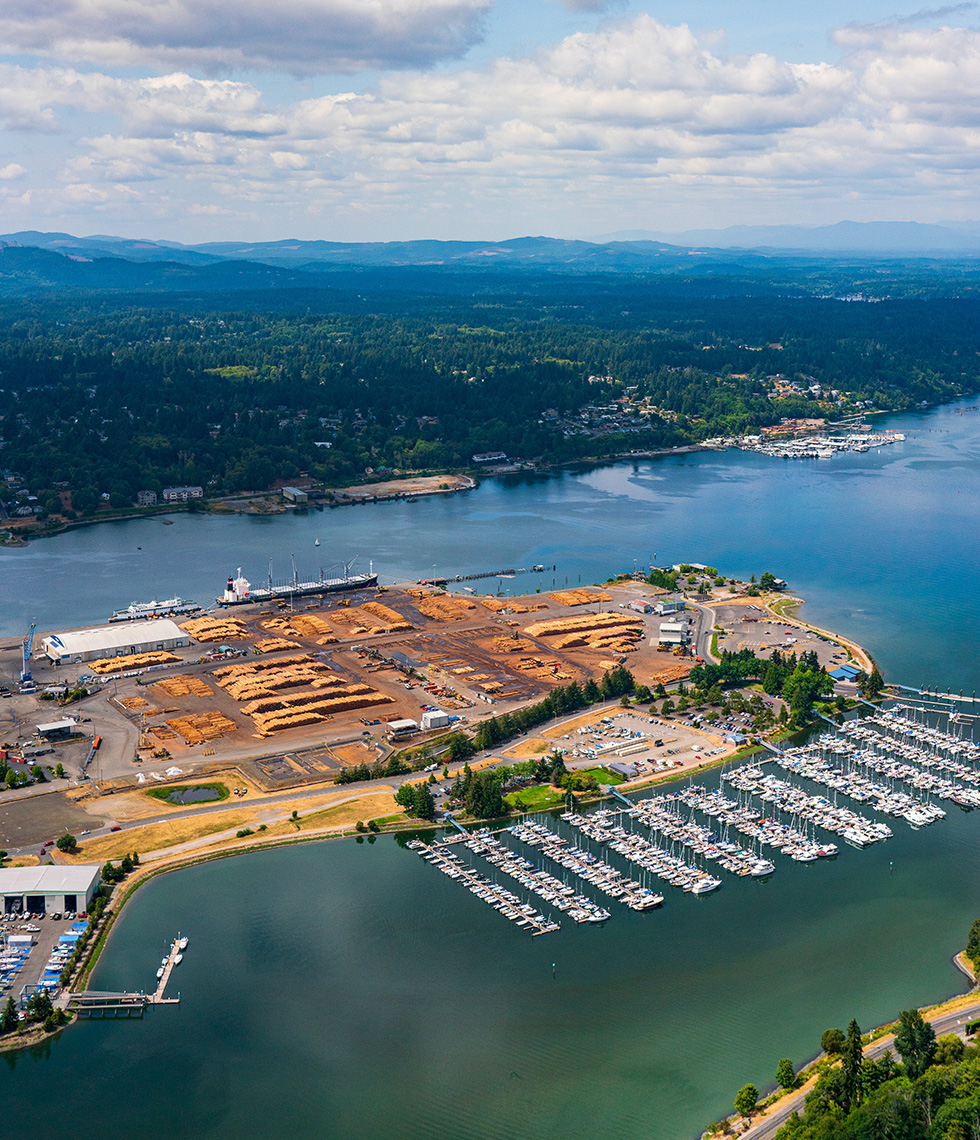About Us
Your Port
The Port of Olympia is a Washington State special purpose municipal corporation serving all of Thurston County. With a proud history deeply rooted in the region, the Port of Olympia stands as a beacon of community service, economic development leadership, tourism, and environmental stewardship. The Capital City port owns and operates four distinct business lines. From the diverse commercial real estate portfolio to the specialized break bulk marine terminal, from the vibrant Swantown Marina and Boatworks to the strategically located Olympia Regional Airport, your Port is well balanced and committed to fostering economic growth of the South Puget Sound region while serving the needs of the global clientele.
For over a century, the Port of Olympia has been a cornerstone of economic prosperity in the community and region. The Ports operations have not only created thousands of jobs but also bolstered the tax base, fueled business expansion, and heavily contributed to the local tourism in the area. Today, the Port sustains well over 5,000 jobs throughout Thurston County, generating millions in revenue and contributes substantially to state and local tax, further underlining our commitment to the growth and vitality of our region.
Mission Statement
“Creating economic opportunities and building community for all of Thurston County through responsible resource use.”

What is a Port?
A Port district in the State of Washington is a municipal corporation, organized under state law and authorized by a majority vote of the residents in the proposed district, and governed by a locally elected board of commissioners. The district can be as large as an entire county or as small as a city or town; its boundaries are defined when it is formed.
When ports were first formed in the early 1900s, their primary purpose was to provide facilities for marine transportation and commerce. Over the years, the Washington State Legislature has expanded the list of port powers and functions. Some ports deal with all aspects of economic development, others with only one or two. They may:
- Develop lands for industrial and commercial needs.
- Provide general economic development programs.
- Buy, lease and sell property.
- Provide air and water pollution control works.
- Operate trade centers and export trading companies.
- Establish and operate foreign trade zones.
- Promote tourism.


